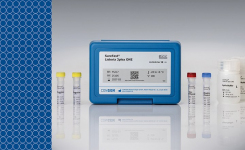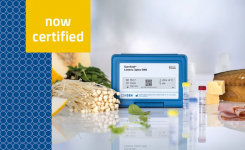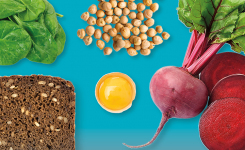Choose gluten-free ingredients or remove gluten
Basically, you have two options to brew a gluten-free beer. One option is to use gluten-free cereals for brewing, such as rice, corn, sorghum, buckwheat or quinoa. The second option is to use conventional cereals and remove the gluten peptides through technological processes – usually using enzymes which break down the gluten and render it harmless. However, this method is not uncontroversial. While some say the taste is far superior to naturally gluten-free beer, others warn that the gluten might not be completely removed.
Know your laws and limit values
If a beer is gluten-free in the UK, it does not mean that it is gluten-free in Australia, too. Brewers who want to market their products internationally must know the local laws. If you want to label a product as "gluten-free" in the EU, it must not exceed the limit value of 20 ppm. This limit value also applies to the USA, with one restriction: Gluten-removed beers must not be labeled as gluten-free even if the gluten content is below the limit value. Such beers are only allowed to be labeled with "processed/treated/crafted to remove gluten" in the USA. Legislation in Australia is even more restrictive: Here, foods labeled as gluten-free must not contain any detectable gluten by the most sensitive universally accepted test method. Foods containing less than 200 ppm may be labeled as "low gluten". In Canada, "gluten-free" means that a product does not contain wheat, spelt, kamut, rye, barley or triticale.
Test for gluten
Testing beer for gluten content is a challenge for many breweries. The worldwide accepted and officially recommended test method for gluten in food is a sandwich ELISA based on the R5 antibody. However, there is a problem when testing beer: Fermentation breaks down gluten to peptide fragments. Since at least two epitopes are necessary for a sandwich ELISA, these single peptide sequences cannot be reliably detected, potentially resulting in false negatives. A competitive ELISA such as RIDASCREEN® Gliadin competitive solves this problem; this test is also the AOAC Official Method for fermented foods.
Prevent cross-contamination
When producing gluten-free and gluten-containing beer in the same brewery, there is a risk of cross-contamination. This is why gluten-free beers should ideally be brewed in a dedicated facility. Gluten-free and gluten-containing ingredients should also be separated during storage and transport. Regular and thorough cleaning of all equipment is obligatory.



















